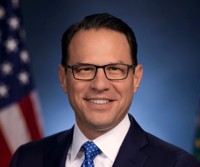
Philadelphia County Court
PHILADELPHIA – Lawyers pushing claims an herbicide caused their clients’ Parkinson’s disease are upset that they don’t get to choose which case will be the first to go to trial in Philadelphia.
The stakes are high for the first few trials against Syngnta and Chevron, who recently lost the argument that they shouldn’t be subjected to lawsuits from non-Pennsylvanians who picked Philadelphia’s pro-plaintiff court to sue.
Two bellwether trials had been scheduled for this year but settled, leaving Jan. 26 as the next scheduled trial date. But lawyers at The Miller Firm, Motley Rice and Wagstaff Law Firm complained last month that an order from Judge Joshua Roberts allows the defendants to select the case to be tried.
“The first verdicts in this (mass tort program), or even the specter of the first verdicts, will exert significant influence on the settlement value of the vast majority of MTP cases that will, as a matter of practical realty, never be tried,” Tayjes Shah of The Miller Firm wrote.
“Allowing Defendants to pick these cases by manipulating the trial setting process would reward Defendants for frustrating the Court’s repeated case management orders by their gamesmanship.”
More than 6,000 plaintiffs have brought suit in federal court, while the Philadelphia Court of Common Pleas handles another 1,360. About 90% of those plaintiffs are from out-of-state.
Juries in Philadelphia sometimes welcome the chance to hammer corporate defendants. For example, a jury hearing claims the weedkiller Roundup awarded $2.2 billion, and another jury gave $725 million in a case against Exxon Mobil over alleged benzene exposure.
The Paraquat cases are similar to Roundup litigation, in which plaintiffs allege exposure to glyphosate caused non-Hodgkin lymphoma. Trials there kicked off with a $175 million verdict in October 2023, then escalated to the $2.2 billion award a few months later. A judge reduced the amount to $400 million.
Verdicts of $3.5 million and $78 million followed, with just one verdict for Monsanto.
In the Paraquat program, plaintiffs lawyers want one of their three preferred cases set for the first test, calling them the only “current trial-ready cases.” They say both sides had acted during litigation that those three were among five that would be tried first.
The other two were settled, so Roberts said Chevron and Syngenta should pick next. Plaintiff lawyers called it a practice to “selectively” settle plaintiff picks when it is too late to substitute a new trial case.
Lawyers for the defendants say this is incorrect. They were ready for trial on one of them, but the family chose to settle when their case could have been dismissed on summary judgment, they say.
“Plaintiffs’ motive is plain: they seek to avoid any jury passing judgment on any cases selected by Defendants, even though Plaintiffs’ counsel filed those cases, in favor of their preferred Plaintiffs,” the companies said.
“But Plaintiffs’ counsel already selected the first two cases that they wanted to take to trial, and those Plaintiffs chose the certainty of settlement instead of the uncertainty of trial.”






